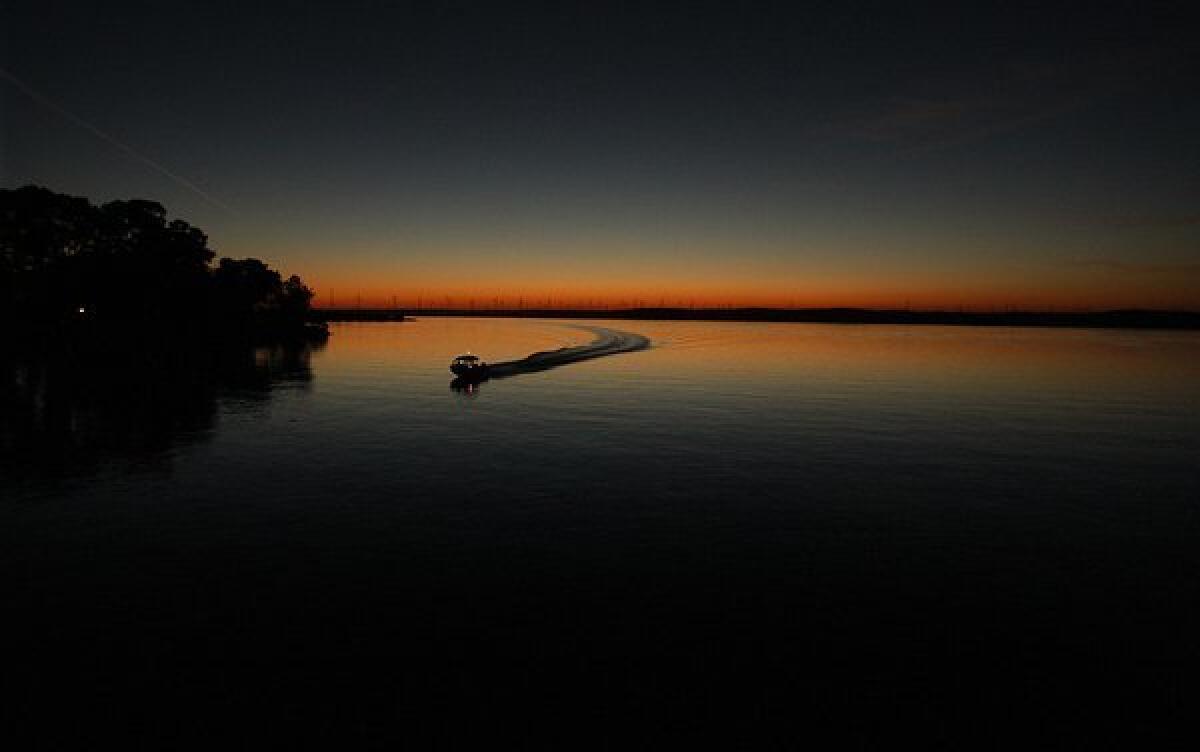State says delta tunnel benefits exceed costs by billions

- Share via
The benefits of reconfiguring the way California exports water from the Sacramento-San Joaquin delta would substantially outweigh the costs, according to a study released Monday by the state.
“This plan makes economic sense. The numbers more than pencil out,” said John Laird, secretary of the California Natural Resources Agency.
The economic analysis, prepared by a consulting group headed by UC Berkeley resource economics professor David Sunding, looks at the long-term costs and benefits of a proposal to build a major new diversion point and tunnel system in the delta, a source of water for roughly 2 out of every 3 Californians.
Most of the costs of the nearly $25-billion project would fall on urban and agricultural ratepayers who get supplies from the south delta. State and federal taxpayers would pick up a smaller share to pay for an extensive program of delta habitat restoration.
Sunding’s group calculated the economic effects of the project’s intended benefits -- stabilized water deliveries, improved water quality and reduced seismic vulnerability -- versus the costs in 2012 dollars. The conclusion, Sunding said, was that the project “does clearly pass a cost-benefit test to the tune of something like $5 billion.”
The report also concluded the tunnel project would generate $83.5 billion in statewide business activity over its 50-year life by averting further water delivery cuts and creating construction and maintenance jobs.
“It is clear that a delta solution that stabilizes water supplies for California and restores the estuary’s ecosystem would be a wise investment for California,” Jeffrey Kightlinger, general manager of the Metropolitan Water District of Southern California, said in a statement. The agency imports Southland supplies from the delta and would pick up a significant portion of the tunnel tab.
Opponents, who’ve conducted their own economic analysis, immediately dismissed the report.
“Our benefits-cost analysis found the cost of the [project] $7 billion higher than its benefits,” said Jeffrey Michael, director of the Business Forecasting Center at the University of the Pacific in Stockton. “It would cost $2.50 for every $1 in benefits, which is one of the lowest ratios for any project I have analyzed.”
“This is a whitewash,” said Carolee Krieger, executive director of the California Water Impact Network. “It glosses over the profound fiscal burden this boondoggle will impose on urban ratepayers south of the delta, while exaggerating the benefits.”
[For the record, 10:40 a.m., Aug. 6: A previous version of this post gave an incorrect figure for the cost of a new diversion point and tunnel system for the Sacramento-San Joaquin Delta. It would cost $25 billion, not $25 million.]







